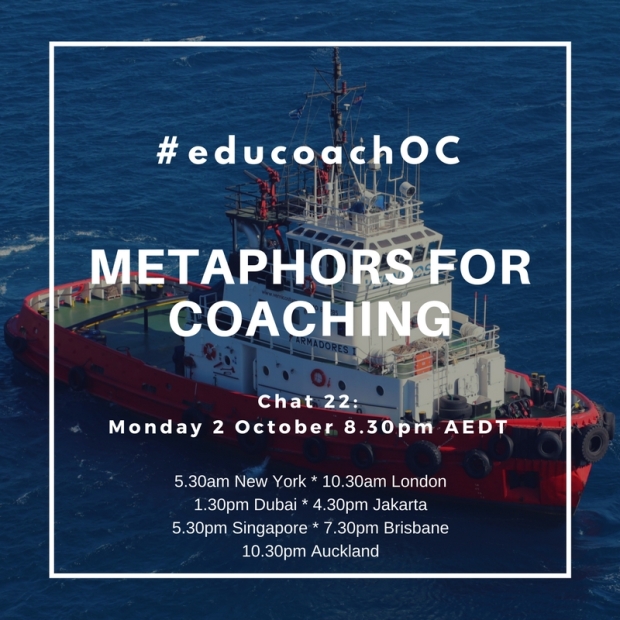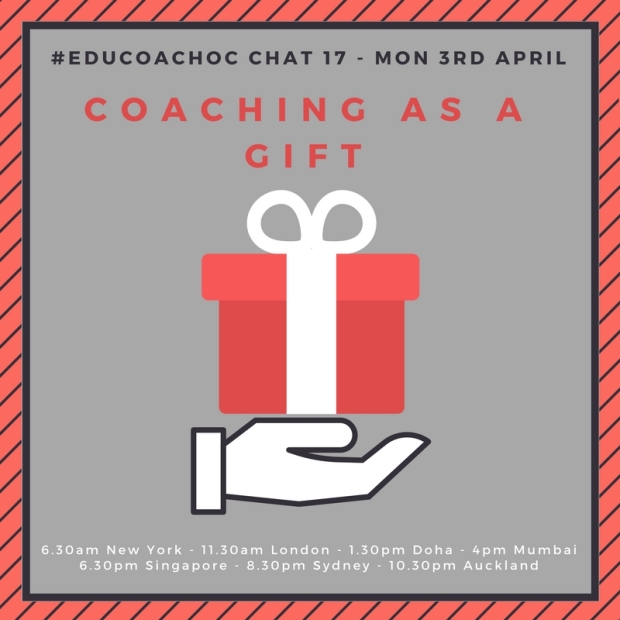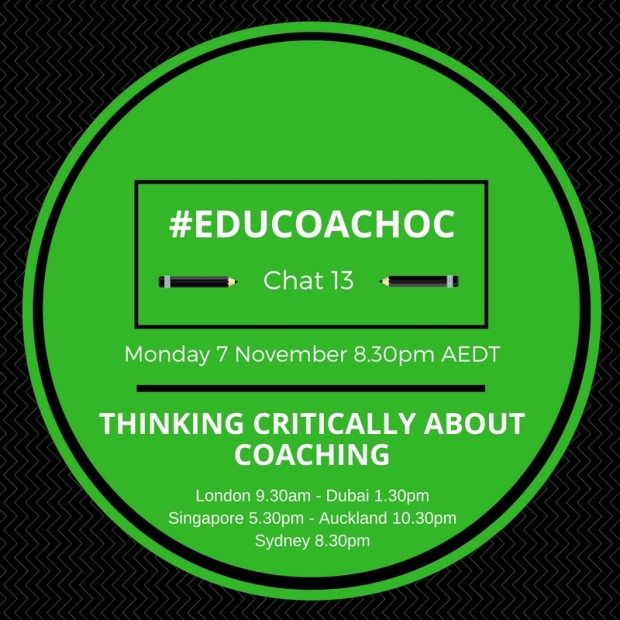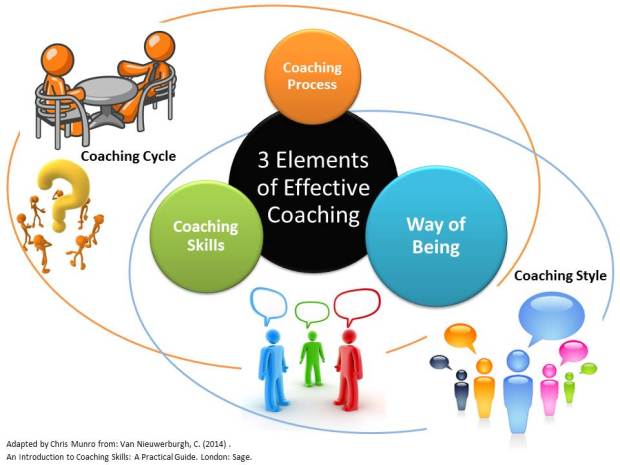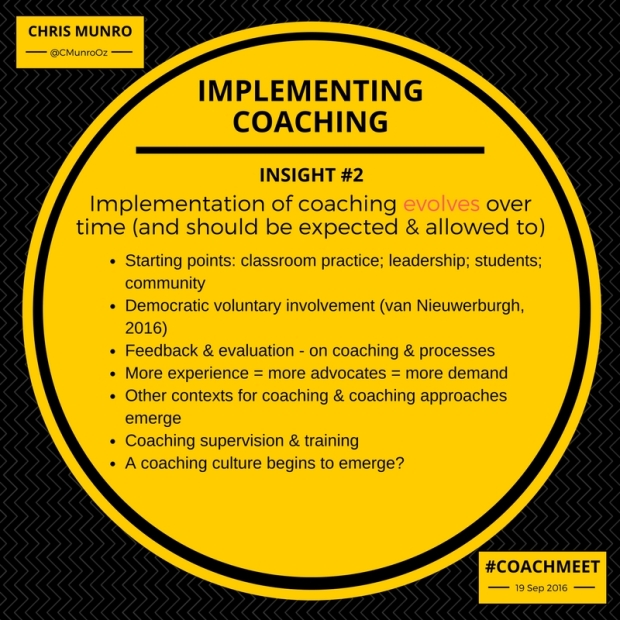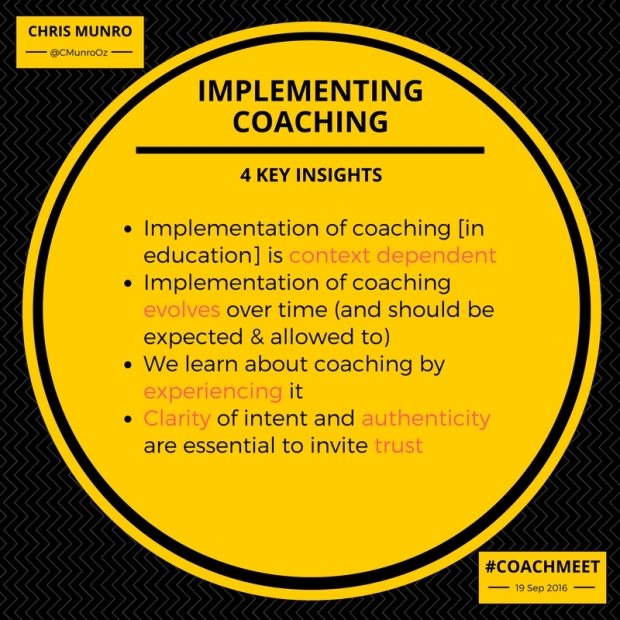Last week I had the privilege of presenting a workshop at the ACEL National Conference with my colleague Jason Pascoe. Here’s the workshop abstract and materials. Please leave a comment if you’d like to discuss our approach further.

Coaching cultures should motivate individuals and facilitate cooperation, collaboration and connection within the organization and with its external stakeholders (Gormley and van Nieuwerburgh, 2014). In schools, a coaching approach to conversations about learning should become part of an organisation’s “way of being”.
When speaking to school leaders about the initiators and drivers of coaching in their contexts, they invariably refer to the conditions that existed before coaching was introduced. These antecedent conditions are the norms, practices and prevalent discourse that may enable or inhibit the rate of development and adoption of coaching. (Munro, C., Barr, M. and van Nieuwerburgh, C. (forthcoming)). These will be different in every school and even in different contexts within a school.
This workshop used a series of short coaching conversations to explore the contextual enablers and inhibitors to establishing a new organisational way of being, or culture. These conversations enabled participants to ‘respect the past’, by identifying the antecedent conditions that will support progress; ‘lead the present’, by identifying opportunities for coaching approaches in their immediate context; and ‘secure the future’ by committing to next steps towards establishing a coaching culture for learning.
